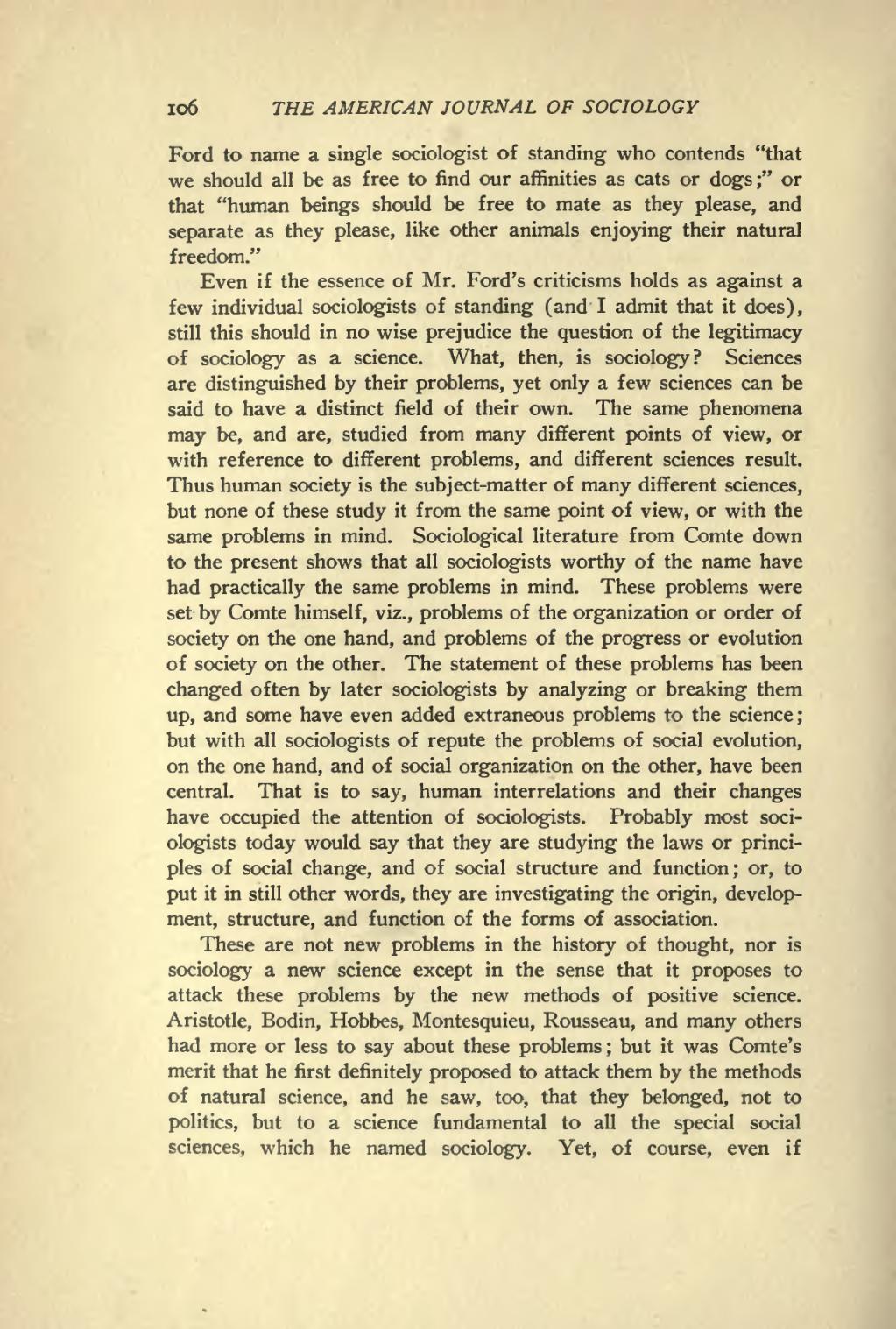Ford to name a single sociologist of standing who contends "that we should all be as free to find our affinities as cats or dogs;" or that "human beings should be free to mate as they please, and separate as they please, like other animals enjoying their natural freedom."
Even if the essence of Mr. Ford's criticisms holds as against a few individual sociologists of standing (and I admit that it does), still this should in no wise prejudice the question of the legitimacy of sociology as a science. What, then, is sociology? Sciences are distinguished by their problems, yet only a few sciences can be said to have a distinct field of their own. The same phenomena may be, and are, studied from many different points of view, or with reference to different problems, and different sciences result. Thus human society is the subject-matter of many different sciences, but none of these study it from the same point of view, or with the same problems in mind. Sociological literature from Comte down to the present shows that all sociologists worthy of the name have had practically the same problems in mind. These problems were set by Comte himself, viz., problems of the organization or order of society on the one hand, and problems of the progress or evolution of society on the other. The statement of these problems has been changed often by later sociologists by analyzing or breaking them up, and some have even added extraneous problems to the science; but with all sociologists of repute the problems of social evolution, on the one hand, and of social organization on the other, have been central. That is to say, human interrelations and their changes have occupied the attention of sociologists. Probably most sociologists today would say that they are studying the laws or principles of social change, and of social structure and function; or, to put it in still other words, they are investigating the origin, development, structure, and function of the forms of association.
These are not new problems in the history of thought, nor is sociology a new science except in the sense that it proposes to attack these problems by the new methods of positive science. Aristotle, Bodin, Hobbes, Montesquieu, Rousseau, and many others had more or less to say about these problems; but it was Comte's merit that he first definitely proposed to attack them by the methods of natural science, and he saw, too, that they belonged, not to politics, but to a science fundamental to all the special social sciences, which he named sociology. Yet, of course, even if
